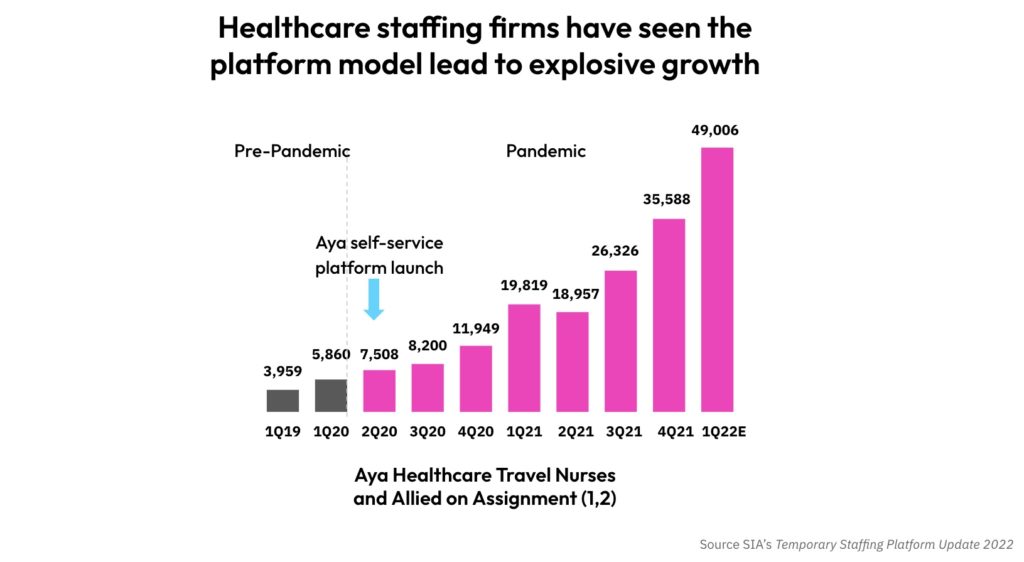We first reported on the rise of healthcare staffing platform technology in May of 2019, after Trusted Health closed a $20 million funding round. Thousands of nurses a week were flocking to the platform because it offered a new type of flexibility and reprieve from “antiquated and inefficient recruiting processes”. It seemed like an important signal that could help solve a major issue that was looming over the country – the nursing shortage.
Then the pandemic hit and amplified both the nursing shortage and the urgency to adopt this kind of technology that instantly paired nurses with their preferred jobs and put them in control. A year into the pandemic and the industry was on a dramatic trajectory of platform adoption.
“It is less about a shortage of nurses than it is about nurses wanting to work”
As Barry Asin noted at SIA’s 2022 Healthcare Staffing Summit, it is less about a shortage of nurses than it is about nurses wanting to work. Fatigue and burnout were now pressuring an already dwindling talent pool, and in many cases the traditional processes in place to put these nurses to work didn’t prioritize their experience. That is, until platform technology came along. Staffing platform technology not only let nurses set their own schedules, but empowered them to search for opportunities based on what mattered most to them. Perhaps most importantly, it brought visibility to pay packages that never existed before and in doing so it turned recruiters from gatekeepers into guides.
Now, several years into the pandemic we have seen undeniable results from this technology that prove a) it’s what healthcare workers want and b) it makes internal teams more efficient. Industry leading platforms like Aya Connect have been on a meteoric rise, helping their recruiters place 7x the amount of nurses than the industry standard. And agencies who had adopted this kind of technology were seeing 317% y/y growth, compared with 61% in agencies without platform tech.

Per diem staffing could be the next big thing
Most recently, this has led to a surge in funding to platform providers, and strong indications that per diem staffing could be the next big thing because of the ease with which this technology can fill last minute single shifts and nurses preference for flexibility. Recently we’ve seen dramatic rounds of funding (and impressive valuations) to:
- ShiftMed: Announced a $200 million funding round in February 2023.
- ShiftKey: Announced a $300 million funding round and impressive appointments to their C Suite
- Clipboard Health: Announced an $80 million funding round in April 2022
Cost-effective solutions exist for smaller agencies
While this solution is out of reach for many smaller agencies, there are options for those looking to acquire this kind of technology. They can partner with a staffing-platform-as-a-service (SPaaS) provider to create their own branded platform. This is a more cost-effective way of creating an on-demand experience that seamlessly connects their clinicians with their preferred jobs. ActivateStaff clients have managed to keep pace with the platform trends mentioned above (like the 300%+ y/y growth) in both the travel nursing/allied and per diem space by rolling out this kind of technology.
For more information on the continued impact of staffing platform tech, you can check out our webinar or book a meeting with our team.



